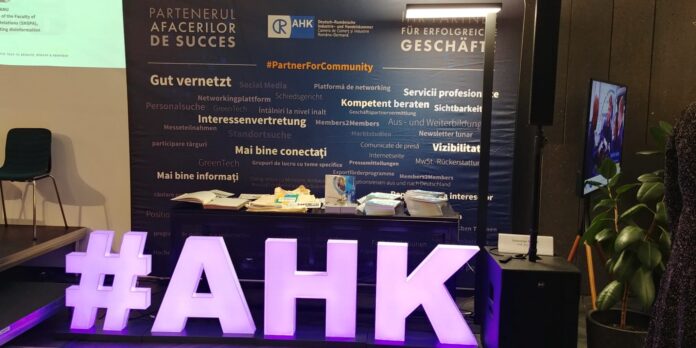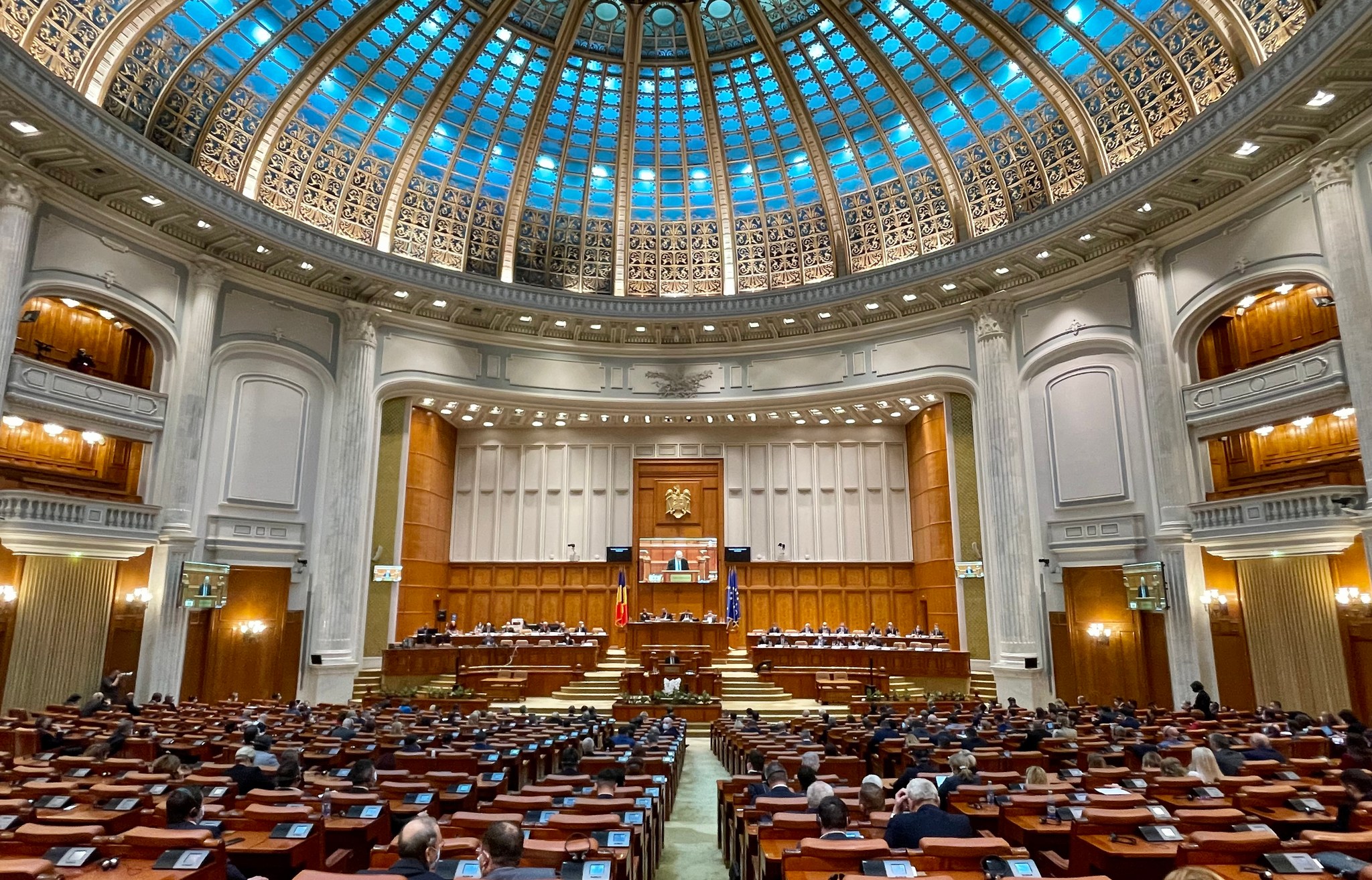The geopolitical context ever more complicated and uncertain, as well as the increasingly visible climate change with dramatic consequences, require more protection for the population, through advanced technologies, including artificial intelligence, but also awareness-raising and correct information activities, informs a press release of the German-Romanian Chamber of Commerce and Industry (AHK Romania).
This was the main message conveyed by the participants in the debate „Business initiation for companies in civil security technologies and services”, organized by AHK Romania on the occasion of a business delegation on the same topic in Romania and the Republic of Moldova.
The event was attended by representatives of the authorities (National Cybersecurity Directorate, General Directorate of Civil Protection of the Ministry of Internal Affairs – MAI, the Chancellery of the Prime Minister), the Embassy of the Federal Republic of Germany, the Federal Ministry for Economic Affairs and Energy, the German-Romanian Chamber of Commerce and Industry, of the civil society (New Strategy Center), as well as of German and Romanian companies in the field.
„Romania is one of the most important security partners on NATO’s eastern flank. In addition, Romania has at its disposal considerable funds, such as European funds, World Bank funds or from national programs. Romania also has a long-established security and defence industry and an innovative and dynamic IT sector. On both sides there are well-positioned companies and a strong interest in security and resilience. This is, therefore, a very good starting point for an even closer and stronger bilateral cooperation in all areas of civil security,” said Sebastian Metz, general director of AHK Romania, at the opening of the debate, according to the cited press release.
The chargé d’affaires of the German Embassy, Christian Plate also deems there are good business opportunities in the field of cybersecurity in Romania, as a country in Ukraine’s neighborhood.
„There are many experts in IT and cybersecurity in Romania, which is not only a fantastic partner and a market for us, but also a place where we can cooperate, share knowledge, develop new strategies, new solutions to counter the threats we are currently facing,” Christian Plate said.
The head of the business delegation, Christian Landsmann, from the Department of Security and Defence of the Federal Ministry of Economic Affairs and Energy, is leading a group of six small and medium-sized German companies on their with mission to the Romanian and Moldovan markets.
„These companies bring innovative concepts in civil security and have the potential to be market leaders. They are here not just to sell products, but to invest, find partners, create jobs. They have the expertise to manage security threats, whether energy, physical, cyber. After our experiences, we see that there is a need for more security in Europe and it is a good idea to work together,” explained Christian Landsmann.
The Black Sea and all the security challenges related to this geopolitical space were one of the topics of debate at the round table moderated by Sebastian Metz.
According to the cited source, the Black Sea means „energy, connectivity”, because Romania will start to export gas from its underwater reserves as of 2027.
„If you want to invest in Romania we will have cheap energy for your business. But security in the Black Sea region depends very much on the outcome of the war in Ukraine. Our main objective is to have a free and open space in the Black Sea, dedicated to energy projects and trade,” said George Scutaru, general director of the New Strategy Center expert group.
Another topic of the discussion was import dependency and Florin Spataru, state advisor in the Prime Minister’s Chancellery, announced that the major directions in which Romania will invest in order to achieve both the goals of decarbonization and competitiveness on the single market will be chosen in the second part of this year.
„In the second half of the year we intend to choose the major directions in which to invest, so that Romania can achieve both its goals of decarbonization and competitiveness on the single market. We are starting to work in those areas where we have our own resources, such as minerals, energy, human capital,” mentioned Florin Spataru.
The prevention of natural disasters or attacks of any kind was another important item on the agenda, including the preparedness of the population, which has been very exposed lately to „fake news” messages on social networks and on certain media channels.
„In order to be prepared in advance and to have „shelters”, the European Commission has approved this huge plan to create our own response capacity within Europe, to become resilient, whether we are talking about ventilators, pumps, aircraft”, said Brigadier General Marius Dogeanu, head of the MAI Directorate General for Civil Protection.
He added that more investments are being channeled towards civil protection, aviation, and in the future investments will also be made in using robots to replace humans in high-risk situations.
The members of the German delegation are visiting Romania and the Republic of Moldova from June 3-5, and they are set to meet with Romanian and Moldovan companies, as well as with representatives of the public administrations of the two countries.
AHK Romania is the official representative of the German economy. Founded in 2002, AHK has more than 670 member companies and offers companies an important platform for networking, exchange of information and experiences. As of January 1, 2020, AHK Romania will also operate the Competence Center for the Republic of Moldova.
AGERPRES




